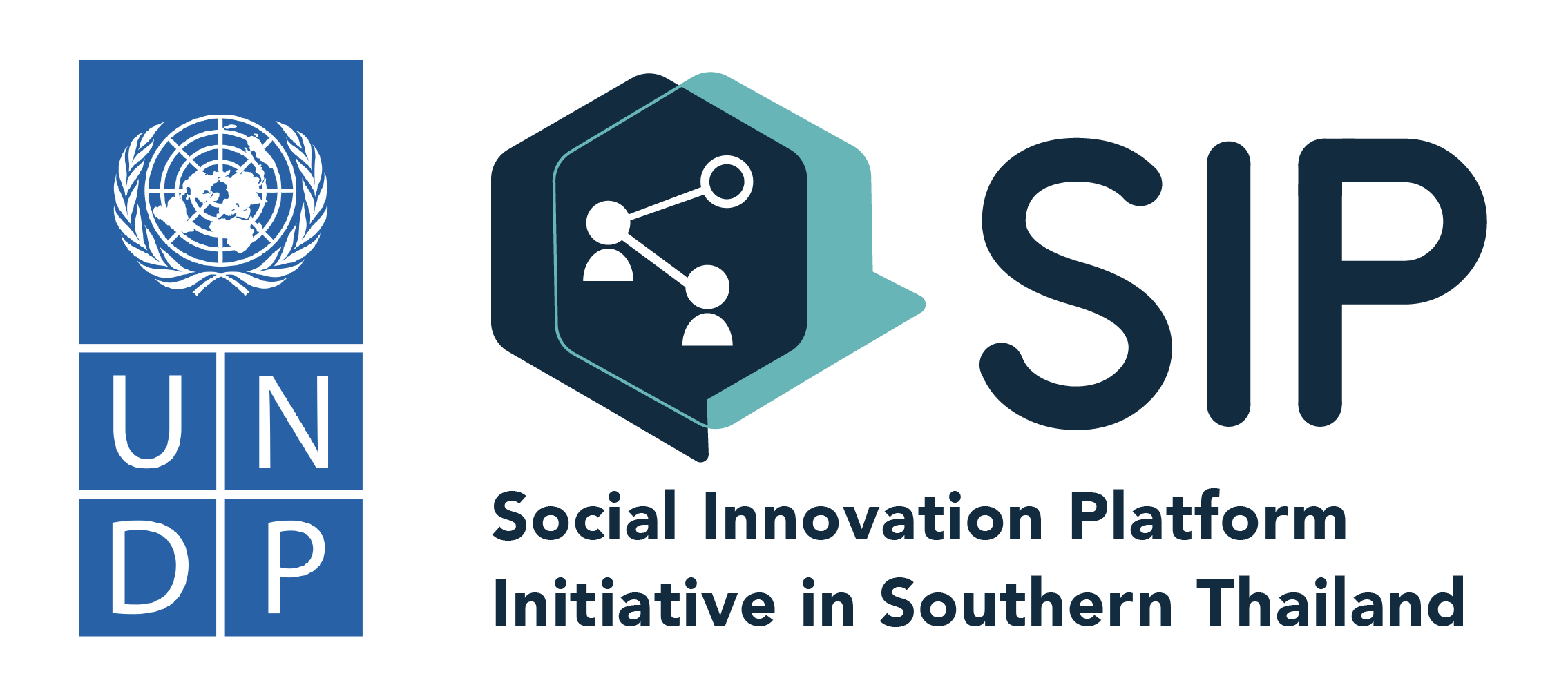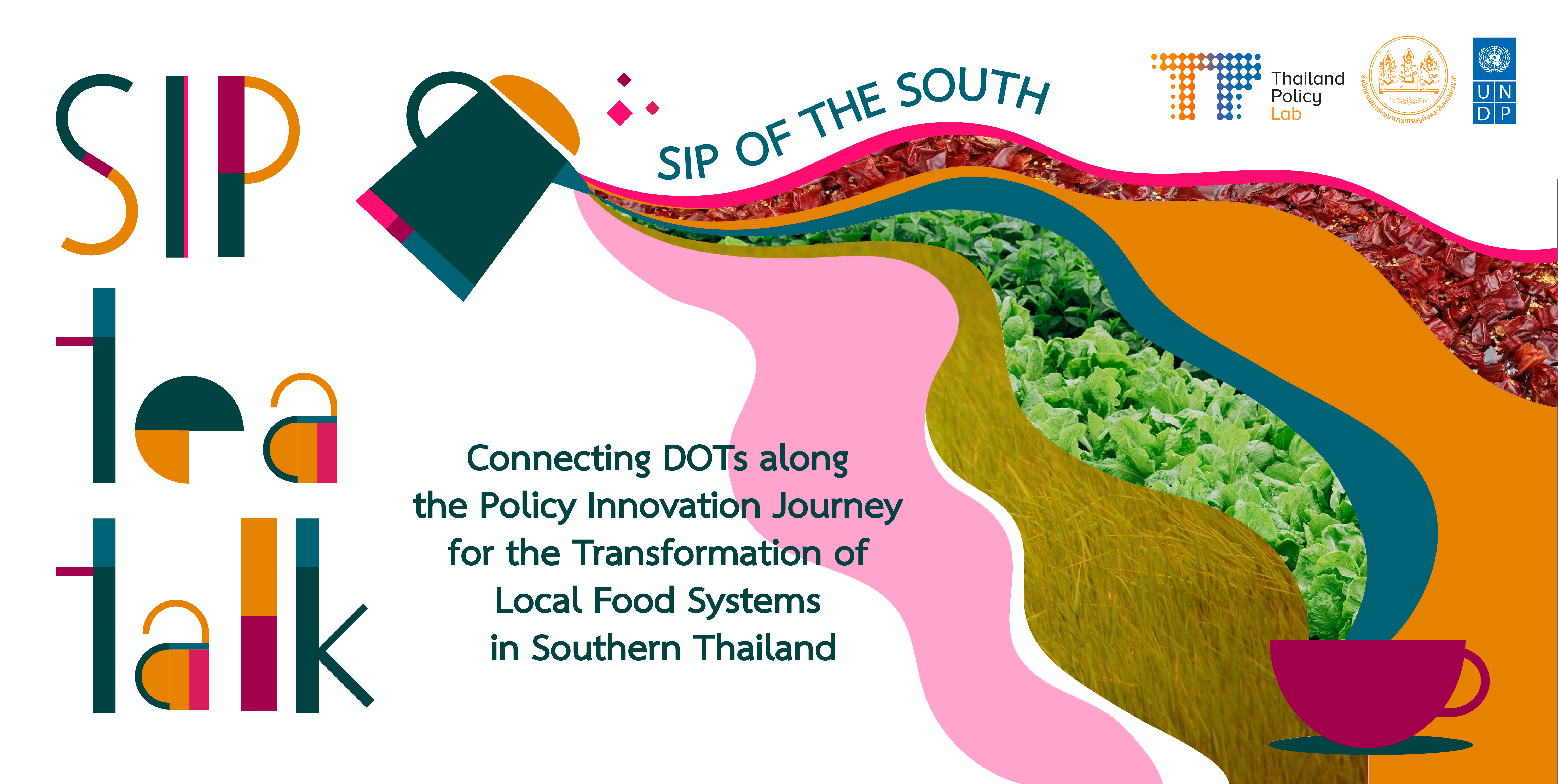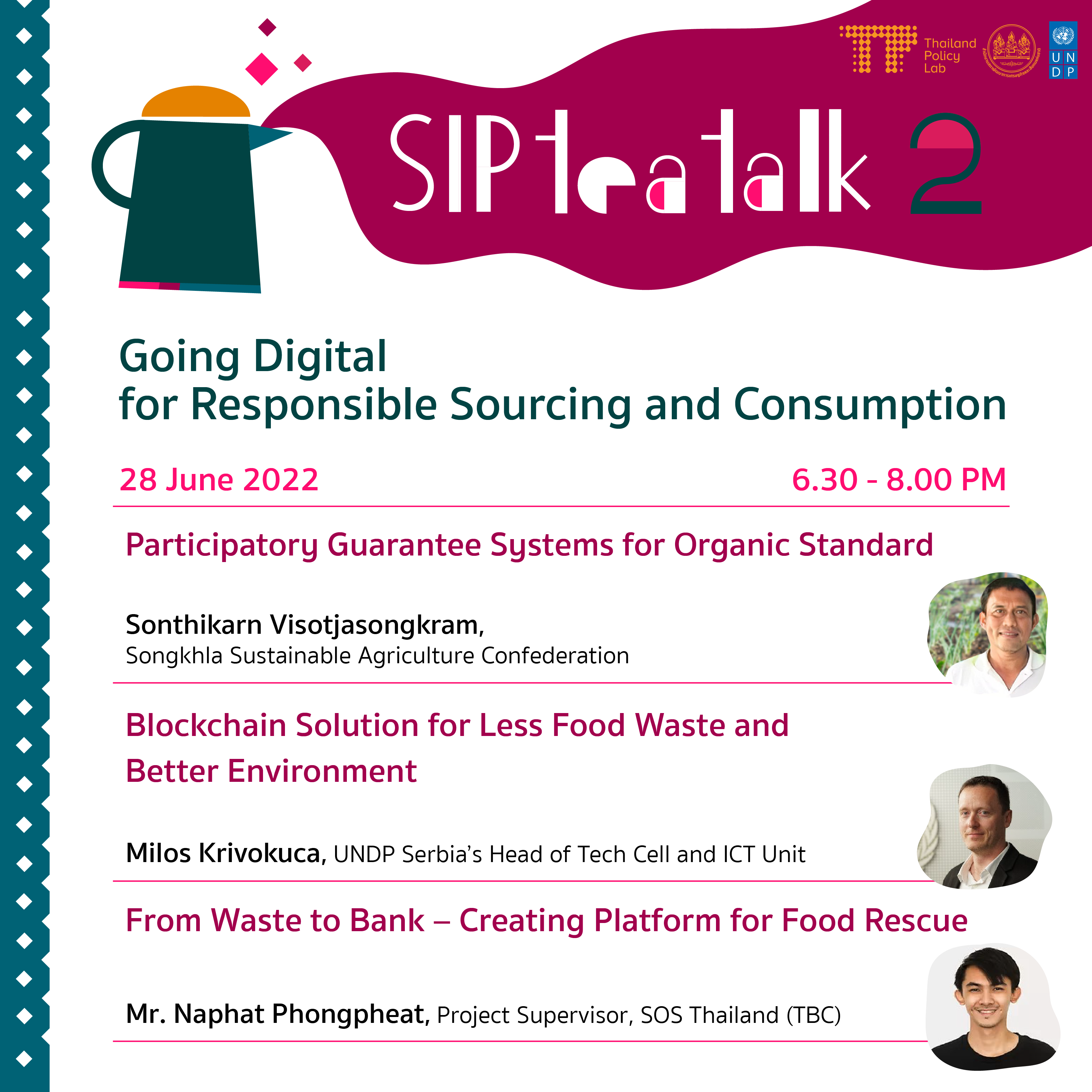- Event date:June 28, 2022 at 6:30 PM
- Event end:June 28, 2022 at 8:00 PM
This post is also available in:
![]() ไทย
ไทย
SIP Tea Talk 2 – From Blockchain to bank food through digital mechanism for sustainable food system
Sharing from Serbia regarding Blockchain for food waste and environmental impact mitigation
Facilitator – Milos Krivokuca, UNDP Serbia’s Head of Tech Cell and ICT Unit
Serbia’s food donation management and food bank has been supported by the government sector and the private sector. The technology developed by UNDP Serbia is automated system using blockchain and has also partnered with the business sector that own a nationwide network of retail stores. We started by showing the process of donating and benefits from automation which spent 1 year to prove transparency and automatic process to stakeholders. Food volume to be donated to vulnerable groups can be tracked in the platform. Moreover, NGO has supported about food collection and distribution. Nowadays, donated food volume has been rising through a solution platform formulated by UNDP that joins hands with the association and retailers to manage the food chain automatically.
Blockchain is utilized to enhance collaboration with stakeholders perfectly. Retailers post photos of foods for donation as well as photos of distribution operations of NGO through the campaign “Plate by Plate”. UNDP initiated the development starting by working at a small level first until more people were involved, such as retail companies in networks, NGOs, and communities as we own the transparent and automatic solution.
Users who are donors or NGOs have to log in to the platform. If the user is NGO, it can choose food which the platform shows details of foods such as weight, fruits, or menus. The food has to be grabbed within 2 hours. If food is not picked up within the specified time, the system will reopen for reservations and other organizations will be able to book. If the user is a company, it has to fill in information and restaurant’s name that wishes to make donation. The platform is as simple as a sale platform. Technology is used to manage the data which allow NGO to check details of donation made by restaurants.
Our challenge is how to make stakeholders/donors to see importance of the platform. At present, NGO joins hands with 60 organizations and we have developed options in the past 2 years such as a restaurant can choose an organization for donation. We have improved the system for all stakeholders.
New digital platform for food donation Plate by Plate launched
Slides – Serbia Food Donation Platform
Plate by Plate – TANJIR PO TANJIR
From foods waste to transfer system and online food bank
Facilitator – Napat Pongpat, project advisor of Scholars of Sustenance Foundation (SOS)
Scholars of Sustenance Foundation or SOS is the foundation that has a similar operation as UNDP Serbia which manages leftover foods such as poor taste, disqualified materials, soon to be expired, no buyer but still edible. It has branches in Phuket, Bangkok and Chiangmai. The foundation has 11 refrigerated trucks to pick leftover foods from partners, i.e., hotels and department stores to donate to vulnerable groups such as temples, detention centers, disabled persons, schools. It operates 7 day per week; holidays are only Songkran days and New Year Day. 1 truck stops by 40 locations and makes donation by the evening on the same day.
In the first few years, the foundation was supported by UNDP. Nowadays, we are trying to rely on ourselves and request subsidies from the government. Current project is Cloud Food Bank to manage foods without renting a warehouse in case of huge volume of donated food because rent is really expensive. Our solution is to use Blockchain which shows donation date and volume as to match with a donee such as number of milk bottles. Blockchain can match individuals with large scale based on big data of foods, weight, delivery address in Excel file. The platform has been operated for six years and gathered details of various donations from donors which have different behaviors such as individuals make donation once a year, restaurants have higher frequency of donations, and industries have clear schedules to remove materials. We have a food safety specialist to consider quality of foods which we do not accept expired foods. Furthermore, we need to make understanding with donors. This is the model of the food bank that has been conducted for 3 months in Bangkok.
Tracing certification system of the organic standards
Facilitator – Sontikarn Wisojsongkram, Chairman of Sustainable Agriculture Confederation of Songkla
Pain point is that farmers do not have a system to record production cost for certifying the standards. They cannot reach midstream and downstream due to lack of platform that analyzes data for improvement such as Klauy Sen market (banana market) receives 100,000 orders, but it does not have enough bananas to produce the product.
All agriculture related parties such as farmers and SME have to be coordinated to audit the upstream and qualify for PGS organic system. Thus, OAN working team is established to monitor supplies from farmers. The data is reliable with details of location, area size, production capacity, frequency as well as data of buyers who are social enterprises. Through this platform, buyers, auditors and sellers can access OFM data to see product launch date and volume which allow buyers to make transaction based on clear details.
Organic farming via this system can enhance its operations and build agriculture network that formulate production planning and marketing planning through mechanisms of auditors and qualified persons. Production data is recorded in the system which farmers can plan make proper consideration and consumers can track or make pre-orders in the system. Moreover, farmers can make planning with enterprises which farmers will be upgraded to be organic agriculture association with secured food market.
Next step, we aim to expand the project across the region and the lower southern provinces. We have worked with district schools to open green markets, agriculture communities to execute the policy of Thai Kitchen to World as well as promoting tourism in border areas. We encourage all provinces to link histories to agriculture as to create agricultural attraction which will bring huge cash inflow to develop the provinces resulting sustainable economy, social and environment.
To achieve sustainability, we need to develop people, before products. The wisdom can build connection. The communities must be educated with practical knowledge, which is different from academic knowledge from the government. Once farmers can make non-toxic farming, they will be aware of its importance and income from organic products is higher. Thus, organic production is preferred over non-organic production. Participants make similar suggestions that we should start with getting GMP as to be qualified for basic standards



Leave a Reply